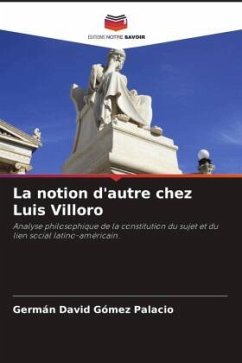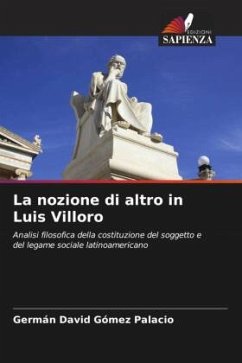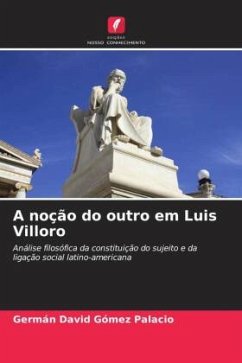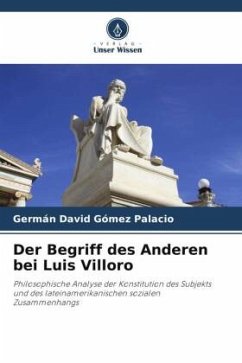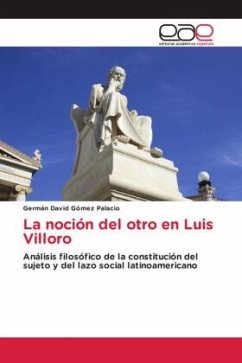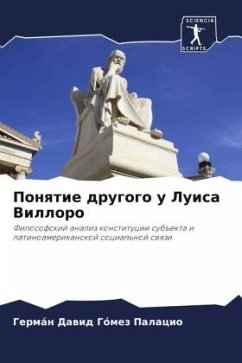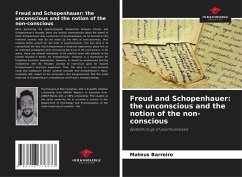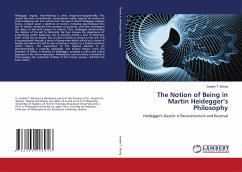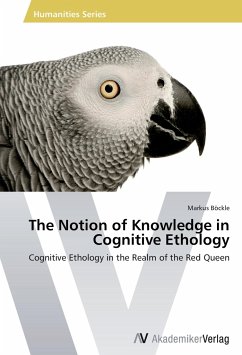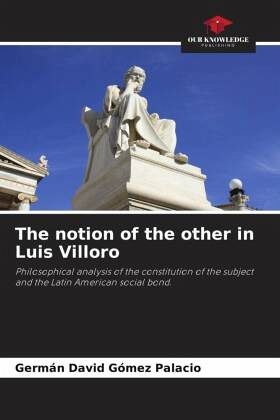
The notion of the other in Luis Villoro
Philosophical analysis of the constitution of the subject and the Latin American social bond.
Versandkostenfrei!
Versandfertig in 6-10 Tagen
56,99 €
inkl. MwSt.

PAYBACK Punkte
28 °P sammeln!
The dimension of the other embraces us. The other embodies difference and as such signifies the impossibility of certainty about what one is and what the other is. The essence of the world is the constitution of the strange, what surrounds us is all a sample of the other, of the foreign that we do not modify or reduce but in the tiny portion that concerns us; the world is a signifier of the other, it is encompassed there. In this sense, Luis Villoro requires a broad philosophical discourse to give consistency to the real presence of the other that he symbolizes in the figure of the indigenous ...
The dimension of the other embraces us. The other embodies difference and as such signifies the impossibility of certainty about what one is and what the other is. The essence of the world is the constitution of the strange, what surrounds us is all a sample of the other, of the foreign that we do not modify or reduce but in the tiny portion that concerns us; the world is a signifier of the other, it is encompassed there. In this sense, Luis Villoro requires a broad philosophical discourse to give consistency to the real presence of the other that he symbolizes in the figure of the indigenous as the essence of being Latin American. Thus, Villoro immerses himself in the need to propose the recognition of the other in his culture as representative of the difference, thus configuring multiculturalism as a principle of reconfiguration of the social bond of the Latin American man. The other and the other that represents the world is not modified, it is assumed in its difference. This is, therefore, the axis of the philosophy of the author in question and the north of the question that guides this research, namely: How does the notion of the other in the work of Luis Villoro constitute the subject and the bond that is established in Latin America?



